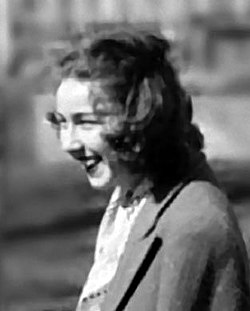Flannery O'Connor Quote
With the energy he had conserved yesterday letting her dress him, he had written a note and pinned it in his pocket. IF FOUND DEAD SHIP EXPRESS COLLECT TO COLEMAN PARRUM, CORINTH, GEORGIA. Under this he had continued: COLEMAN SELL MY BELONGINGS AND PAY THE FREIGHT ON ME & THE UNDERTAKER. ANYTHING LEFT OVER YOU CAN KEEP. YOURS TRULY T. C. TANNER. P.S. STAY WHERE YOU ARE. DON’T LET THEM TALK YOU INTO COMING UP HERE. ITS NO KIND OF PLACE.
Flannery O'Connor
With the energy he had conserved yesterday letting her dress him, he had written a note and pinned it in his pocket. IF FOUND DEAD SHIP EXPRESS COLLECT TO COLEMAN PARRUM, CORINTH, GEORGIA. Under this he had continued: COLEMAN SELL MY BELONGINGS AND PAY THE FREIGHT ON ME & THE UNDERTAKER. ANYTHING LEFT OVER YOU CAN KEEP. YOURS TRULY T. C. TANNER. P.S. STAY WHERE YOU ARE. DON’T LET THEM TALK YOU INTO COMING UP HERE. ITS NO KIND OF PLACE.
Related Quotes
About Flannery O'Connor
Mary Flannery O'Connor (March 25, 1925 – August 3, 1964) was an American novelist, short story writer, and essayist. She wrote two novels and 31 short stories, as well as a number of reviews and commentaries.
O'Connor was a Southern writer who often wrote in a sardonic Southern Gothic style. She relied heavily on regional settings and grotesque characters, often in violent situations. In her writing, an unsentimental acceptance or rejection of the limitations, imperfections or differences of these characters (whether attributed to disability, race, crime, religion or sanity) typically underpins the drama.
O'Connor's writing often reflects her Catholic faith, and frequently examines questions of morality and ethics. Her posthumously compiled Complete Stories won the 1972 U.S. National Book Award for Fiction and has been the subject of enduring praise.
O'Connor was a Southern writer who often wrote in a sardonic Southern Gothic style. She relied heavily on regional settings and grotesque characters, often in violent situations. In her writing, an unsentimental acceptance or rejection of the limitations, imperfections or differences of these characters (whether attributed to disability, race, crime, religion or sanity) typically underpins the drama.
O'Connor's writing often reflects her Catholic faith, and frequently examines questions of morality and ethics. Her posthumously compiled Complete Stories won the 1972 U.S. National Book Award for Fiction and has been the subject of enduring praise.
